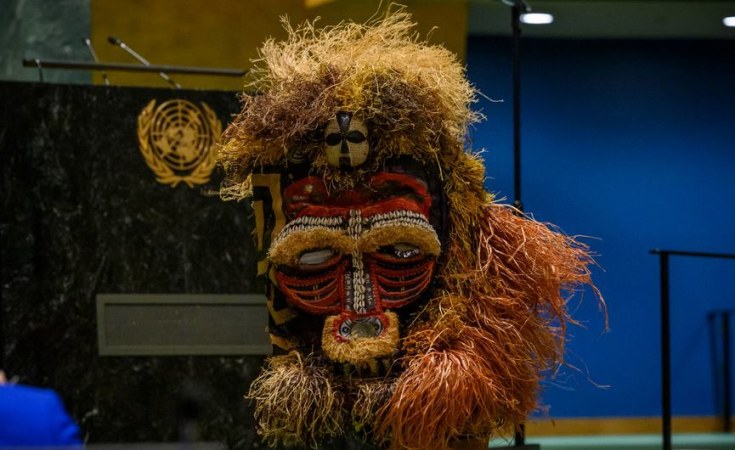Reparatory justice must tackle the grave human rights violations deeply entrenched in the legacy of colonialism and enslavement, the General Assembly heard on Thursday on the International Day for the Elimination of Racial Discrimination, marked annually on 21 March.
Experts and UN leaders exchanged views about the best ways forward, centred on this year's theme, A Decade of Recognition, Justice, and Development: Implementation of the International Decade for People of African Descent.
While the decade ends in 2024, much work remains to be done, General Assembly President Dennis Francis told the world body.
To galvanize action-based efforts, he announced a meeting focusing on the issue of reparatory justice, to be held on Monday on the International Day of Remembrance of the Victims of Slavery and the Transatlantic Slave Trade, marked on 25 March.
People of African descent face many prejudices and injustices through legacies of slavery and colonialism, from police brutality to inequalities, he said, stressing that the world must take action to fully protect their human rights.
"Racism and racial discrimination are a flagrant violation of human rights," he said. "It is morally wrong, has no place in our world and must therefore be roundly repudiated."
UN chief slams 'devastating' legacies
The results of the legacy of enslavement and colonialism are "devastating", said UN Secretary-General António Guterres in a statement delivered by UN Chef de Cabinet Courtenay Rattray.
Pointing to opportunities stolen, dignity denied, rights violated, lives taken and lives destroyed, he said "racism is an evil infecting countries and societies around the world."
While racism is "rife", it impacts communities differently.
Action must dismantle inequalities
"People of African descent face a unique history of systemic and institutionalized racism, and profound challenges today," the UN chief said. "We must respond to that reality, learning from and building on the tireless advocacy of people of African descent."
Action must change that, he said, from governments advancing policies and other measures to eliminate racism against people of African descent to tech firms urgently addressing racial bias in artificial intelligence.
Violent history
Chef de Cabinet Mr. Rattray, speaking on his own behalf, reminded the world body that the International Day is observed annually on the day the police in Sharpeville, South Africa, opened fire and killed 69 people at a peaceful demonstration against apartheid "pass laws" in 1960.
Since then, the apartheid system in South Africa has been dismantled, and racist laws and practices have been abolished in many countries.
Today, a global framework for fighting racism is guided by the International Convention on the Elimination of Racial Discrimination, which is now nearing universal ratification.
'Commemoration is not enough'
However, Mr. Rattray said, racism is entrenched in social structures, policies and the realities of millions today, violating people's dignity and rights while fuelling silent discrimination in health, housing, education and daily life.
"It is high time we shook ourselves free," he said, calling for action.
"Commemoration is not enough. Eliminating discrimination requires action."
That includes countries and businesses delivering reparatory justice, he said.
Also addressing the General Assembly were Ilze Brand Kehris, Assistant Secretary-General for Human Rights and June Soomer, Chair-designate of the Permanent Forum on People of African Descent.
For full coverage of this and other official UN gatherings, visit UN Meetings Coverage, in English and French.


